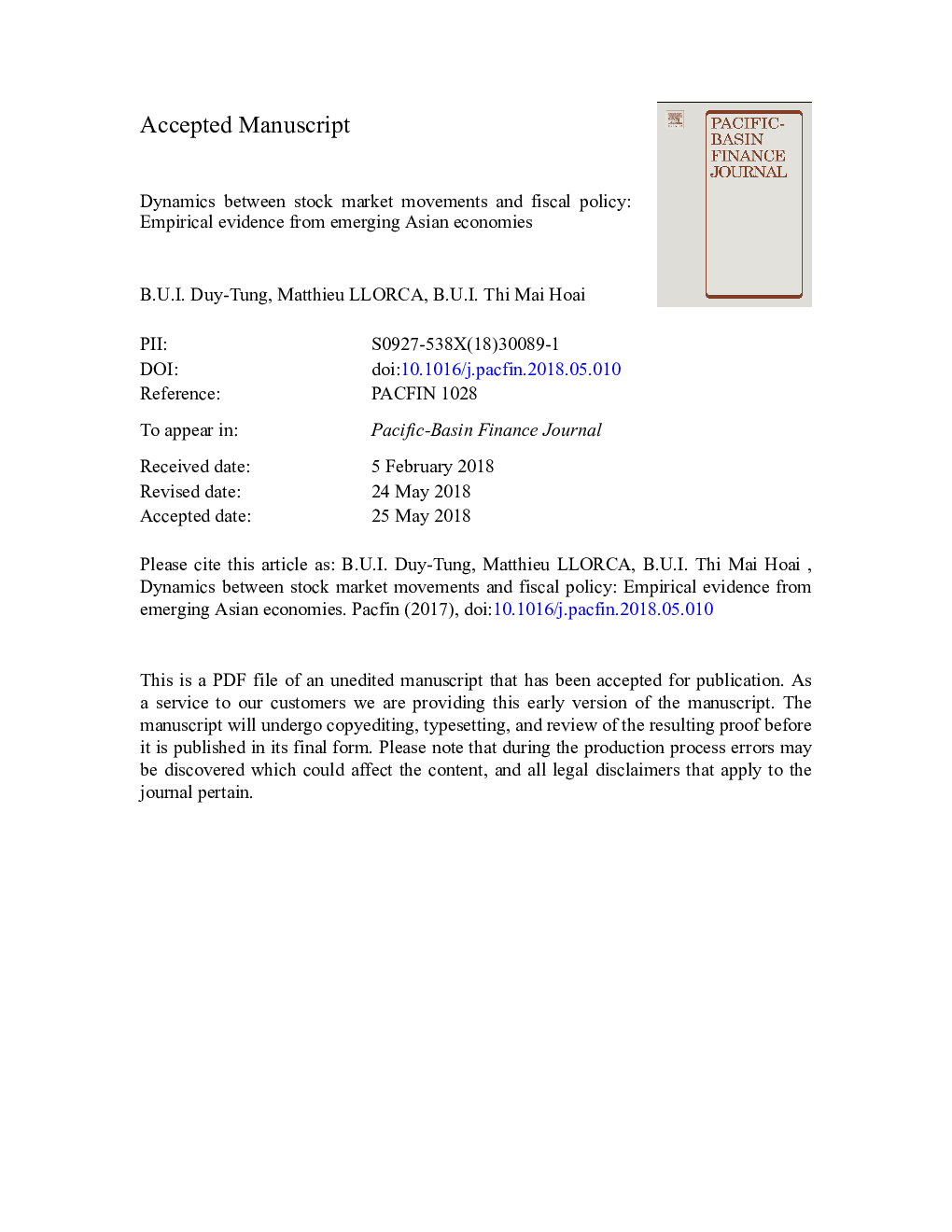| Article ID | Journal | Published Year | Pages | File Type |
|---|---|---|---|---|
| 7374059 | Pacific-Basin Finance Journal | 2018 | 29 Pages |
Abstract
Pro-cyclical fiscal policy has raised concern in many emerging economies due to its adverse consequences to the economic activities. This paper takes a different approach to the issue, which aims to examine the bidirectional relationships between fiscal policy and stock market activities, using a panel of 12 emerging Asia-Pacific economies from 1990 to 2015. We estimate a variety of Panel Vector Autoregressive models to test for the consistence of the results. The empirical results show that fiscal policies in these countries tend to a pro-cyclical path in responding to stock market movements. The pro-cyclical behavior is found with both government expenditure and government revenue. On the other hand, a fiscal consolidation attempt has a rewarding effect on stock prices.
Related Topics
Social Sciences and Humanities
Economics, Econometrics and Finance
Economics and Econometrics
Authors
Duy-Tung BUI, Matthieu LLORCA, Thi Mai Hoai BUI,
